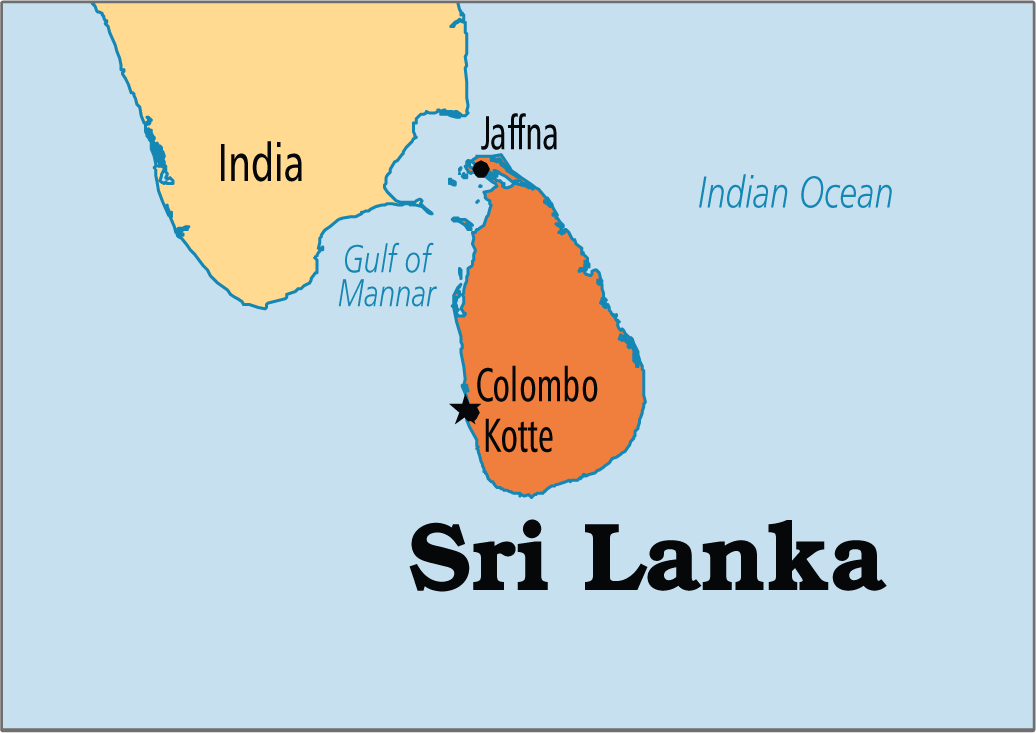International Relations
Fishermen Issue with Sri Lanka
- 09 Jul 2020
- 4 min read
Why in News
Recently, Sri Lanka’s northern fishermen have reported a sudden increase in the number of Indian trawlers spotted in its territorial waters.
- The territorial waters extend seaward up to 12 nautical miles (nm) from baselines of a country.
- Fishermen along the northern coast of Jaffna Peninsula have lost their nets worth lakhs of rupees in the sea, after being caught under the large Indian trawlers.
- These Indian trawlers are known to originate from the Indian State of Tamil Nadu.
Background
- Introduction of the International Maritime Boundary Line :
- Indian boats have been fishing in the troubled waters for centuries and had a free run of the Bay of Bengal, Palk Bay and the Gulf of Mannar until 1974 and 1976 when treaties were signed between the two countries to demarcate International Maritime Boundary Line (IMBL).
- However, the treaties failed to factor in the hardship of thousands of traditional fishermen who were forced to restrict themselves to a meagre area in their fishing forays.
- Katchatheevu Island Issue:
- The small islet of Katchatheevu, hitherto used by them for sorting their catch and drying their nets, fell on the other side of the IMBL.
- Fishermen often risk their lives and cross the IMBL rather than return empty-handed, but the Sri Lankan Navy is on alert, and have either arrested or destroyed fishing nets and vessels of those who have crossed the line.
- Implementation of Practical Agreements:
- Both countries have agreed on certain practical arrangements to deal with the issue of bona fide fishermen of either side crossing the International Maritime Boundary Line.
- Through these arrangements, it has been possible to deal with the issue of detention of fishermen in a humane manner.
- India and Sri Lanka have agreed to set up a Joint Working Group (JWG) on Fisheries between the Ministry of Agriculture and Farmers’ Welfare of India and Ministry of Fisheries and Aquatic Resources Development of Sri Lanka as the mechanism to help find a permanent solution to the fishermen issue.
Key Points
- Threat to Livelihoods:
- The Sri lankan fishermen fear that their livelihoods will be hit due to trawlers which are already under strain due to the coronavirus pandemic induced reduction in the export.
- Step Taken by Sri Lanka:
- In the last couple of years, Sri Lanka has introduced tougher laws banning bottom-trawling, and has also introduced heavy fines for trespassing foreign vessels.
- The Sri Lankan Navy arrested over 450 Indian fishermen in 2017 and 156 in 2018 on charges of poaching. A total of 210 arrests were made in 2019, while 34 have been made so far in 2020.
- Scare of Covid-19:
- The Sri Lankan fishermen have been alleging that currently the Sri Lankan Navy is reluctant to arrest the trespassing fishermen from Tamil Nadu now, due to the Covid-19 prevalence in India.
- However, the Sri Lankan Navy claims to be very vigilant along their borders not just to monitor illegal fishing, but also to take action on any illicit activity such as narcotics trade.
Way Forward
- India needs to focus more on its traditional and cultural ties to improve relations with Sri Lanka.
- Starting ferry services between India and Sri Lanka can improve people to people linkages.
- Mutual recognition of each other's concerns and interests can improve the relationship between both countries.




